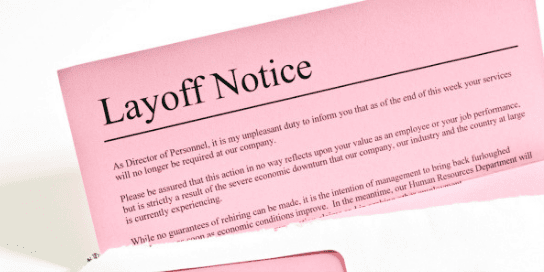So…What do you actually do for me?
Before I launched MARGIN almost two years ago, an obsessive quest began: What were my peers really delivering to clients?
- Not just their marketed online services.
- Not just the lip service of their pitches.
- Not just their portfolio allocations and investment services.
- Not just their pricing.
- Not just their financial planning technology.
What were they actually doing?
So, I researched. Firm after firm. Advisor after advisor. Plan after plan. Diligently, throughout the country I reviewed as many plans, firms and regulatory documents I could get my hands on.
I needed to be sure I was providing as much value as possible in what I delivered to clients.
A peer asked me, “Do you really think clients will know the difference?”
It doesn’t matter if clients don’t know the real difference—I do.
One thing stood out.
Most don’t provide written personalized recommendations
Most financial advisory firms oversell their services rarely showing a true deliverable of their real work.
What they do provide almost never includes anything written out specifically for your situation.
It’s a printout template.
Datsit.
So many other people think financial planning is investing in VTSAX, and calling it a day. It’s not. Even other shops adding value through managing your investment allocation for diversification, taxes, risk, income, time horizon, and other factors between accounts.
Investing is important, but it’s just one area of focus. One.
Regularly, clients need help on investments, but soon realize other gaps in planning we need to tighten: tax planning, cross-border work, estate planning, insurance, college planning, retirement planning, etc. Everything is connected. Like a constellation leading the way. Not just following lone star.
And real financial planning with written recommendations is the key to connecting everything in your financial universe.
“I’m going to fire you for writing that down”
Most firms are prohibited by their “compliance” departments from reviewing and advising on tax returns, employee benefits, outside investments, businesses, real estate, and many more meaningful areas that add value in your financial life. Most importantly, they’re not allowed to provide written recommendations.
For example, once, when I worked at a bank private client group, my manager pulled me into an office…
Manager: “Eriic… Eriiiic… Eriiiiiiiic… You can’t keep writing out tax advice in e-mails. Compliance wants me to give you this.”
Me: “A write-up? Michael, are you serious? I meticulously labeled everything, cited the exact IRS code I was using, explained each trade-off, and asked them to confirm all my assumptions with their CPA. Which they did.”
Manager: “You just can’t put anything in writing, and you can’t provide any tax advice at all. You need to run it more like a chop shop, and get people in and out.”
Would you trust a doctor who asks you to remember and write down your own prescription? A lawyer who won’t put anything in writing regarding your case? What if you want another professional to review the work? What if you want to review it later after you marinate on the recommendations?
If Vanguard, Charles Schwab, Fidelity, and other fancy firms with billions under management are really “transparent,” why don’t they post sample plans?
It’s simple. They want assets. Investments are a lead generation source for them because they want to sell you other things. Make money off of you in different ways, or they still need to feed the call center beast: Making sure they stay employed sticking to the thick call center script.
Datsit.
What I expect in plans I review
It’s a constant evolution, but here are my principles:
#1: What questions are we really solving for?
Why are we really doing this? If it’s not important, it’s not going to get done. Our clients need answers. And, if we don’t discover what you specifically need a recommendation on, we can be lavishly wasting time—and missing opportunities.
Do you miss your grandkids, want to work part-time, and need to know if you can retire in 5 years? Are you really serious about doing that trip around the world, but wondering if you can really afford it? Are you getting killed on taxes? Do you suspect there might be another way to reduce them, but you just don’t know how? Do you want to retire early, but worry about health insurance, getting employed again—if needed, and what your parents will think?
Why are we really doing this?
#2: An action checklist with verbs
What do you really need to understand, review, do, decide, analyze, or reallocate? Financial planning is doing. Not just talking. We do things. I can execute some, but you also need to execute some on your side.
What is the most urgent and important today? What deadlines do we have? What is related that needs to be timed just right?
Write it out.
I have clients who are retired military special operations, and attack these action checklists like a 3:00 A.M. Taliban firefight to the next bunker. Other clients are more leisurely, like they’re having a five-course meal. It’s all good with me, but we both need to know what to do, and when it needs to be done by, and when it needs to get done by.
#3: Recommendations are backed up with detailed qualitative and quantitative analysis
Without research and rigor, let’s just call it what it really is: Data entry.
Let me give you an example at MARGIN.
A client’s former advisor kept going on and on about why he needed to keep his very expensive whole life polices: returns, cashflow, death benefits, taxes, and guaranteed income.
Instead of just saying, “No, they are terrible, get rid of ‘em,” I went topic by topic and laid out my analysis. Plus, I know how these whole life guys play fast with the numbers, so I wanted to come locked and loaded with my analysis:




These ass(umptions) happen all the time. Things people think are true… often aren’t. Still, people profess them without doing research to understand the assumptions.
Even other professionals default to past assumptions.
Once, a CPA I was trying to work with told my client that 401(k)s versus a SEP IRA are loaded with fees, have too many tax forms, and that I clearly didn’t know what I was talking about. $50,000 a year later in overpayment of contributions and lack of tax benefits, we had a different result. The CPA’s assumptions didn’t prove right after we did a thorough trade-off analysis.
#4: More than a print-out from a black box
You can’t just use one planning tool, or a dashboard. Black boxes are full of assumptions. A lot of times they can create overconfidence, or skew “the analysis,” because you need multiple lenses to dissect a financial challenge. Not just a mote carlo probability of sucess print-off, as these vary greatly by firm.
A black box can also be manipulated by “advisors.” It’s not fun to report, but rosier or non-sensical pictures of your financial situation can be used to win business by manipulating assumptions within the black box. Yes. I’ve seen it at times when clients bring me print-offs. Things don’t add up.
Plus, these new-age planning tools leave huge gaps in many different areas. Software misses without internal checklists, and connecting many unique one-offs in other important planning topics. If you just hand over a print-off, you are preparing clients for a white belt test breaking boards in Karate instead of a street fight where risks lurk around every corner ready to take their wallet.
Yes, I still use planning software, but blindly following autopilot can create an emergency landing if you really don’t understand how to actually fly the plane, or use it as a crutch. I use other methods, models, and research, so I can use as many tools as we need.
Insist on value: Request personalized written recommendations
When I presented my written recommendations in my financial plan to a local financial advisor, he took one look and just blurted out:
“Wow!!! Eric that looks like it takes you a looooot of time…You really do that for every client?”
I was silent.
If you are not getting a highly personalized, rigorous, written plan with recommendations and alternatives… that’s expensive lip service.
And, most likely, the best advice you never received. If you’re interested in joining the MARGIN community, of course, we’ll review a sample plan together before we decide whether it’s a great mutual fit.






